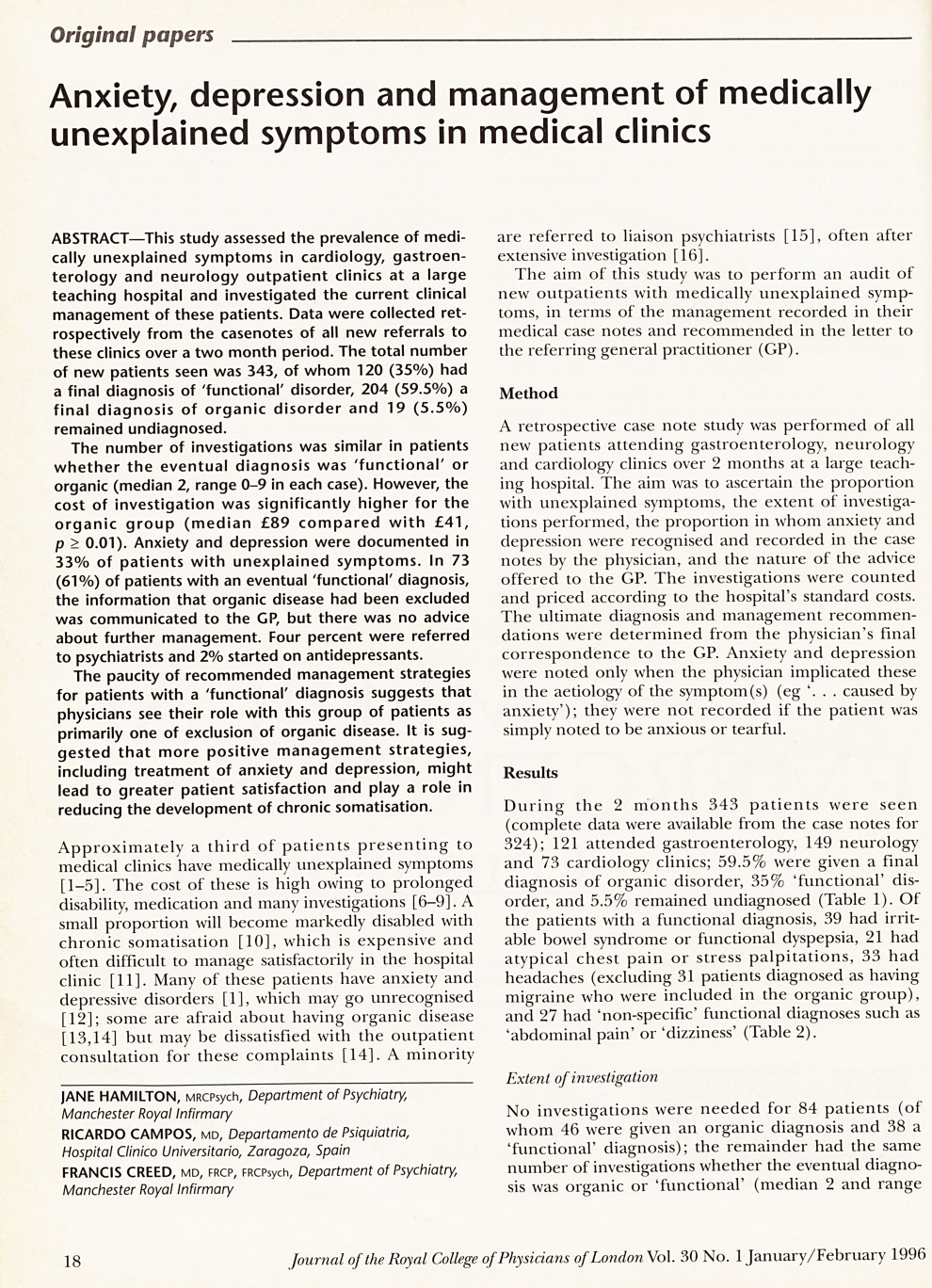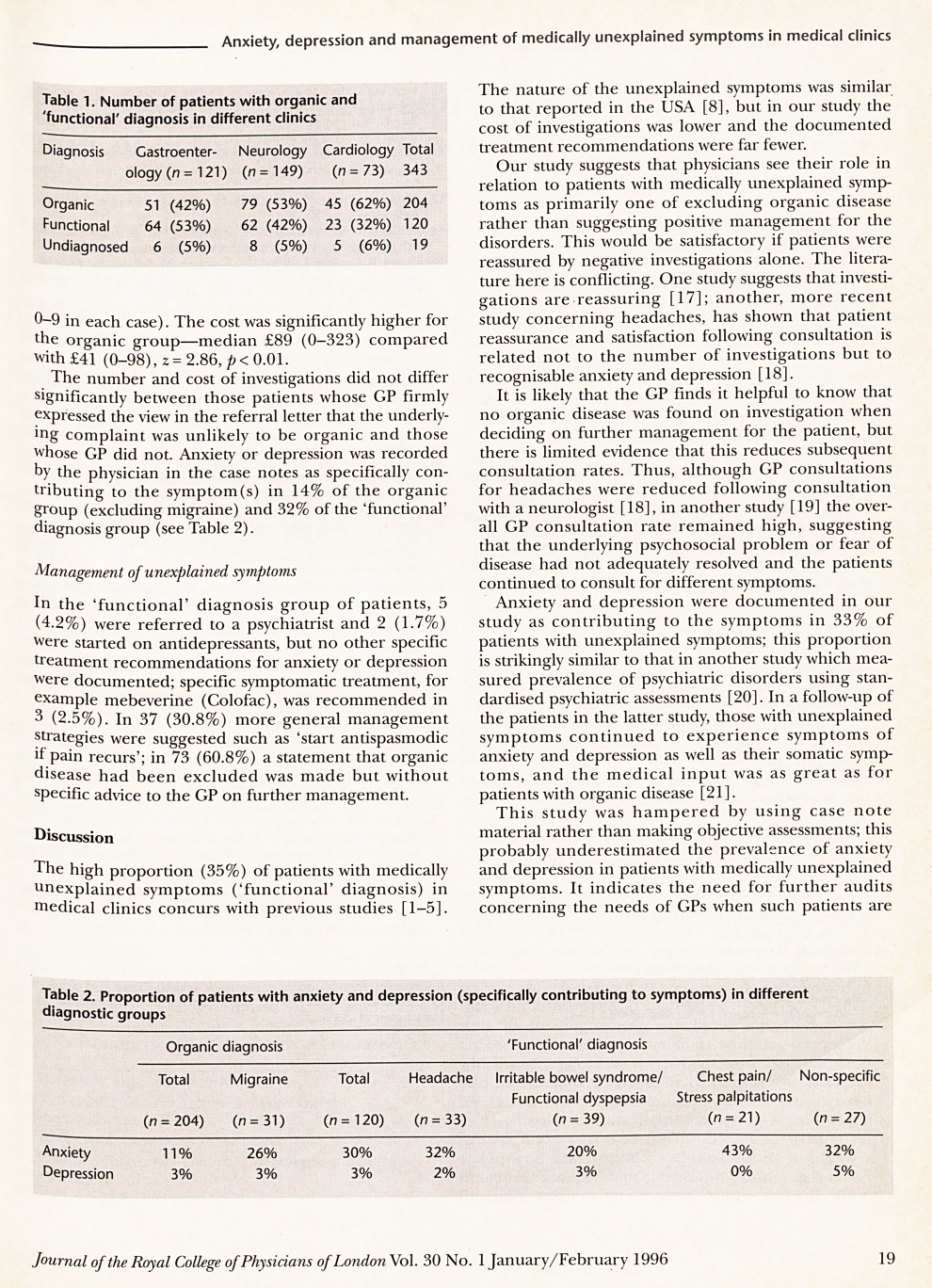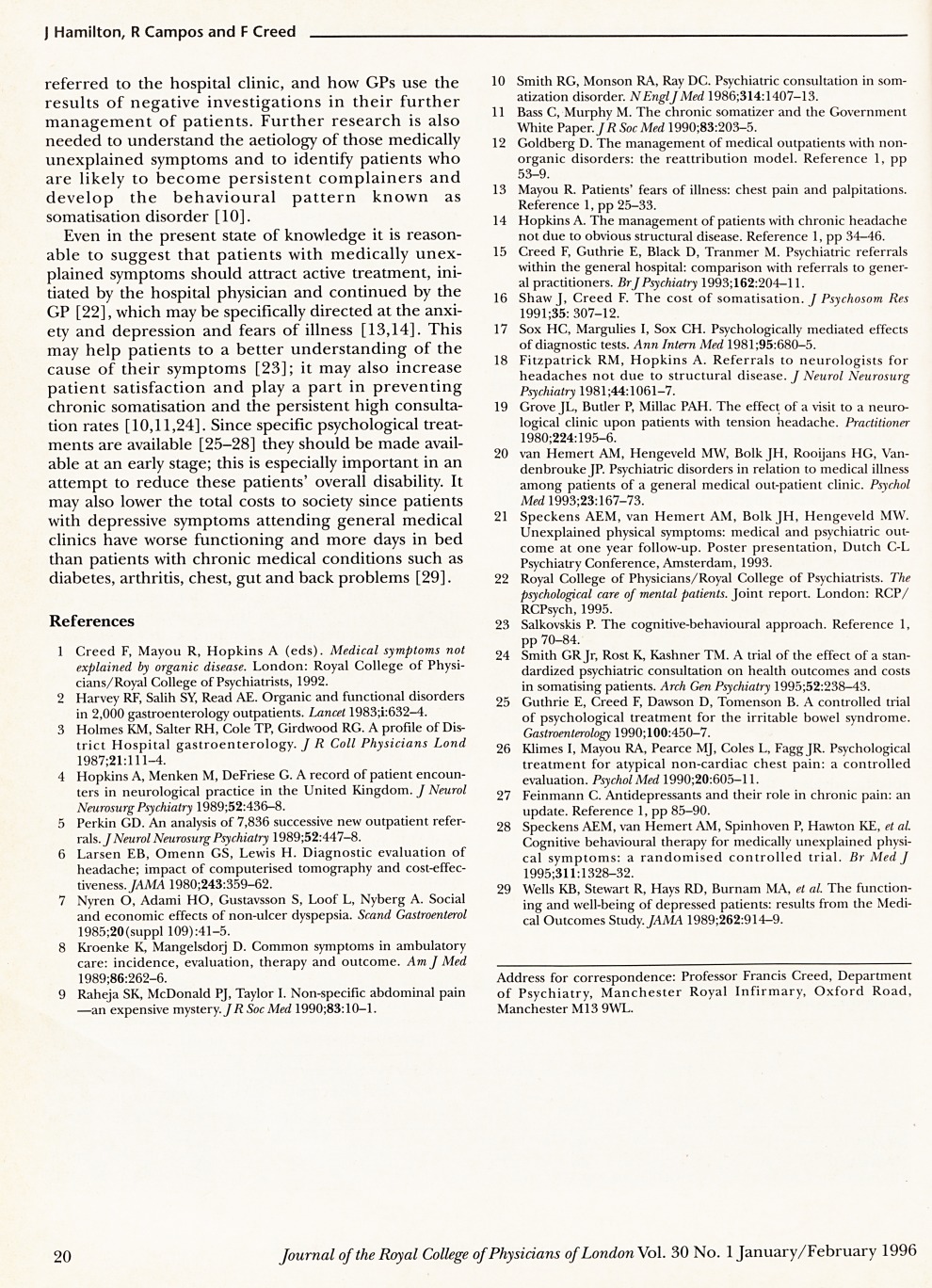Abstract
This study assessed the prevalence of medically unexplained symptoms in cardiology, gastroenterology and neurology outpatient clinics at a large teaching hospital and investigated the current clinical management of these patients. Data were collected retrospectively from the casenotes of all new referrals to these clinics over a two month period. The total number of new patients seen was 343, of whom 120 (35%) had a final diagnosis of 'functional' disorder, 204 (59.5%) a final diagnosis of organic disorder and 19 (5.5%) remained undiagnosed.
The number of investigations was similar in patients whether the eventual diagnosis was 'functional' or organic (median 2, range 0—9 in each case). However, the cost of investigation was significantly higher for the organic group (median £89 compared with £41, p ≥ 0.01). Anxiety and depression were documented in 33% of patients with unexplained symptoms. In 73 (61%) of patients with an eventual 'functional' diagnosis, the information that organic disease had been excluded was communicated to the GP, but there was no advice about further management. Four percent were referred to psychiatrists and 2% started on antidepressants.
The paucity of recommended management strategies for patients with a 'functional' diagnosis suggests that physicians see their role with this group of patients as primarily one of exclusion of organic disease. It is suggested that more positive management strategies, including treatment of anxiety and depression, might lead to greater patient satisfaction and play a role in reducing the development of chronic somatisation.
Full text
PDF


Contributor Information
Jane Hamilton, Department of Psychiatry, Manchester Royal Infirmary.
Ricardo Campos, Departamento de Psiquiatria, Hospital Clinico Universitario, Zaragoza, Spain.
Francis Creed, Department of Psychiatry, Manchester Royal Infirmary.


